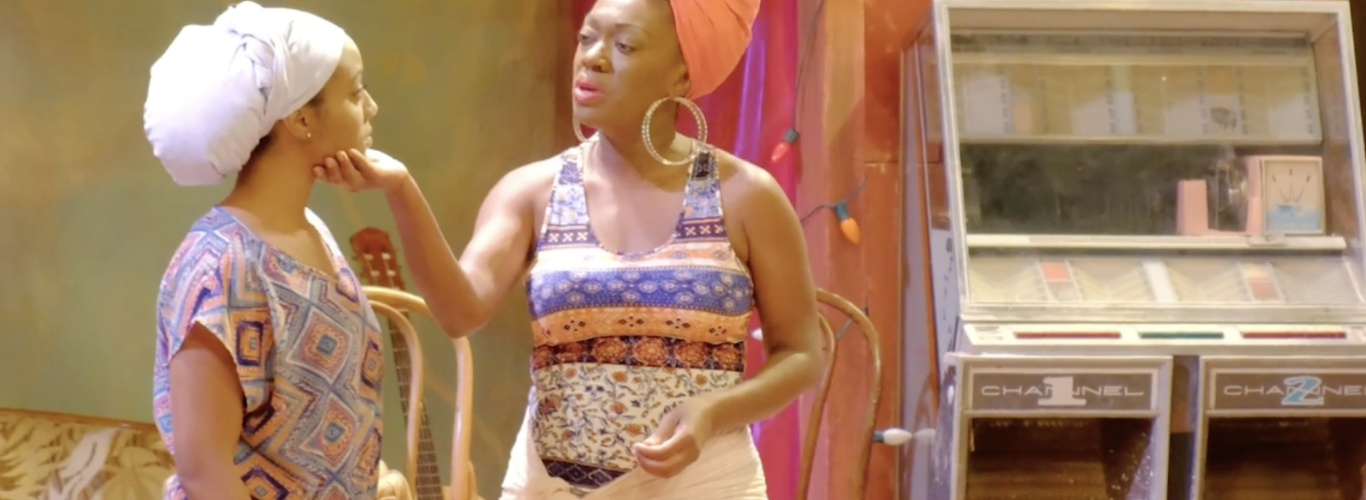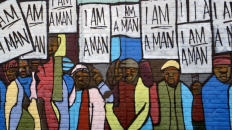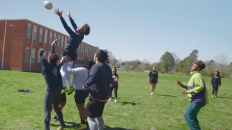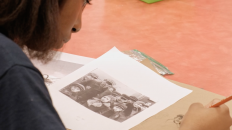Hattiloo is one of the keepers of the Black theater canon for our country. Named for founder and CEO Ekundayo Bandele’s two daughters, Hatshepsut (Hatti) and Oluremi (Loo), Hattiloo is entering its twelfth season. It defines itself as a Black theater to let people know its aesthetic and what’s “on the menu.”
Ekundayo tells us that Hattiloo uses plays, panel discussions, film series, and other experiences to teach about Black culture. Through stories about life in a local public housing complex, the Hill District of Pittsburgh, or war-torn Congo, people learn about themselves and others. Hattiloo also serves as a school for talent, a space for theater professionals to hone their craft, whether it be acting, playwriting, directing, lighting, or sound.
We visit Hattiloo on opening night of the Pulitzer Prize-winning play Ruined, a Congolese civil war story set in a bar and brothel, and watch talented actor Bertram Williams, who later tells us his Hattiloo story. When he was a senior in high school, Bertram first met Ekundayo (whom he calls “Ek”) at an on-campus performance of one of Ek’s original plays. Bertram tells us how it took him aback to see someone who looked like him on the stage. He was drawn to Ekundayo’s energy and leadership and immediately knew he wanted to learn from him. His first foray into theater was helping demolish a set at Hattiloo. He says “several hammered thumbs later” he ended up on its stage.
Bertram shares with us his belief that the measure of a man is in the way he builds lives. He tells us that Ekundayo has played a big role in building his life since they met ten years ago. Ek has spent time with him, shared stories with him, and supported him in tough times. Bertram explains that growing up isn’t easy, especially as a young black male in Memphis where it is easy to find yourself walking down the wrong path or becoming complacent with an idea you have of yourself.
Ekundayo teaches us that Ade Yoruba, the Nigerian language from which his name comes, has no word for “I.” You cannot say “I am hungry” or “I am tired” or “I did this.” You say “we” because, as Ekundayo explains, “it’s always bigger than you.” You are always representing your family, community, and ancestors.
Ekundayo expresses his hope that “Black people realize how beautiful they are so they can really start making the contributions to society that we’re capable of.” Thanks, Ekundayo, for playing a role in lives and helping show Black people they are beautiful by preserving and sharing Black culture at Hattiloo. You represent your family, community and ancestors well.




